The InCARE project will contribute to the design of a coherent and coordinated approach to the development of national long-term care policy and care services at local and regional level, by establishing socially innovative and participatory decision-making processes.
We work with care users, care provider organizations and policy-makers in Spain, Austria and North Macedonia to design, implement and scale-up innovative care services, with the ultimate goal of improving the well-being of older people and their families and increase their access to adequate and affordable care.
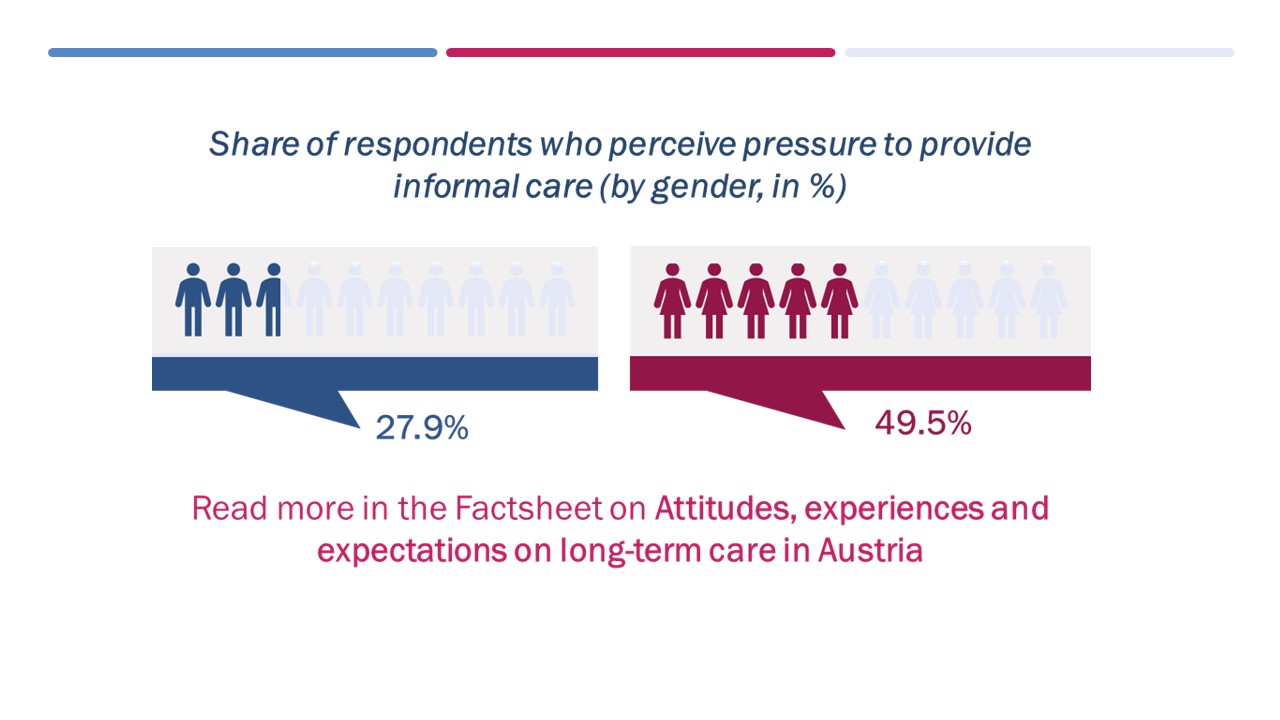
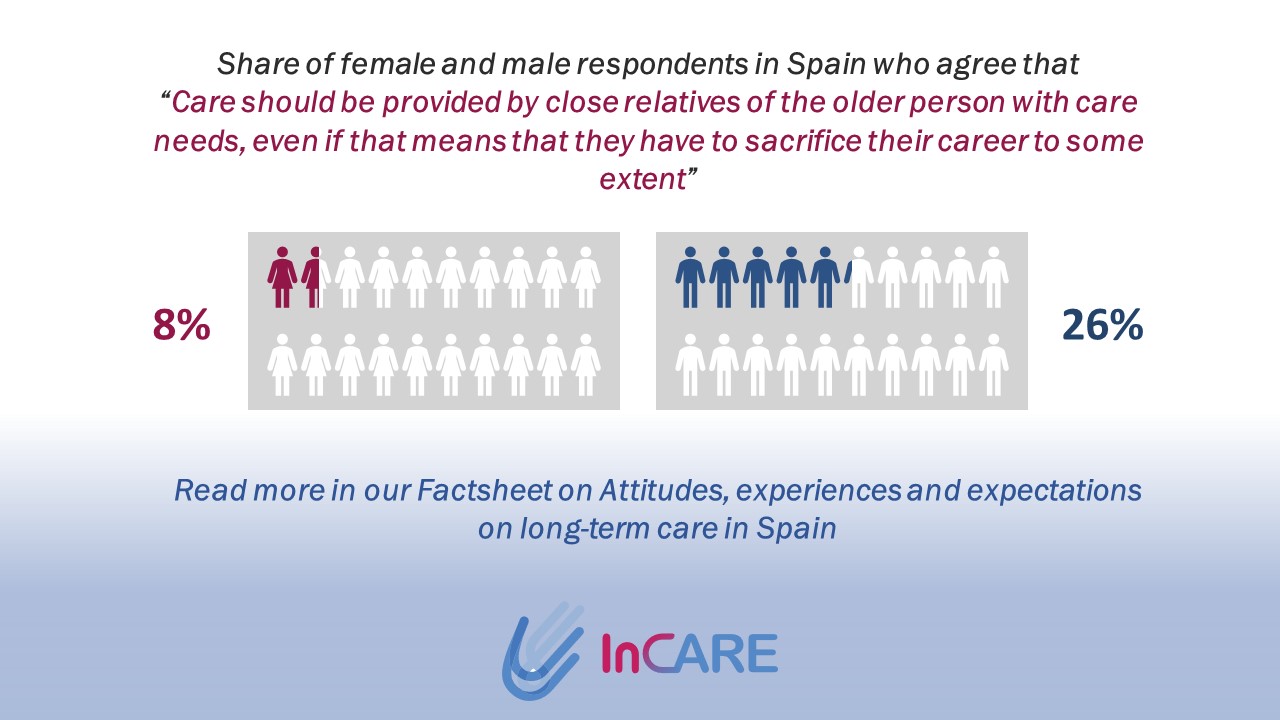
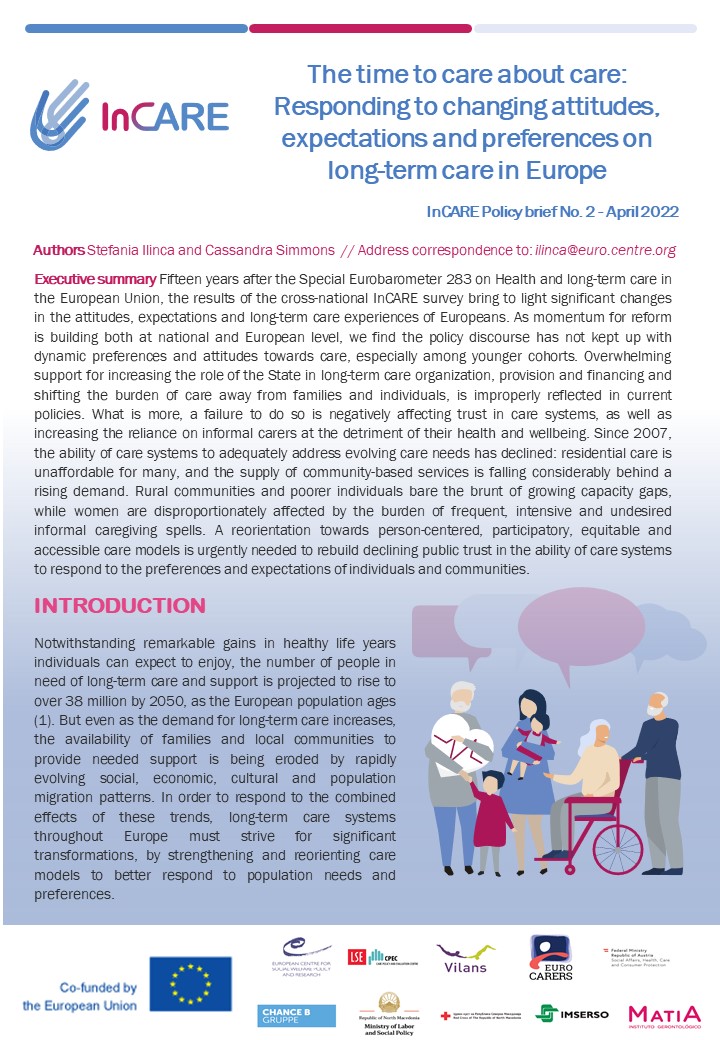
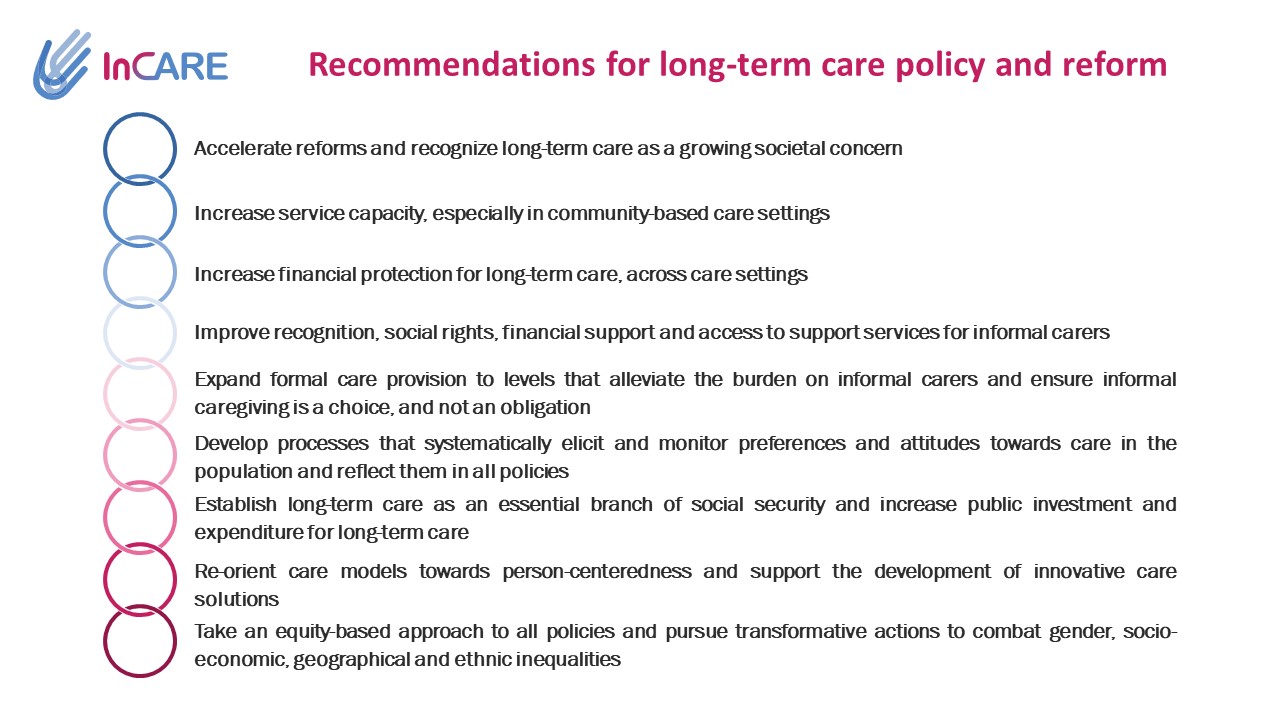
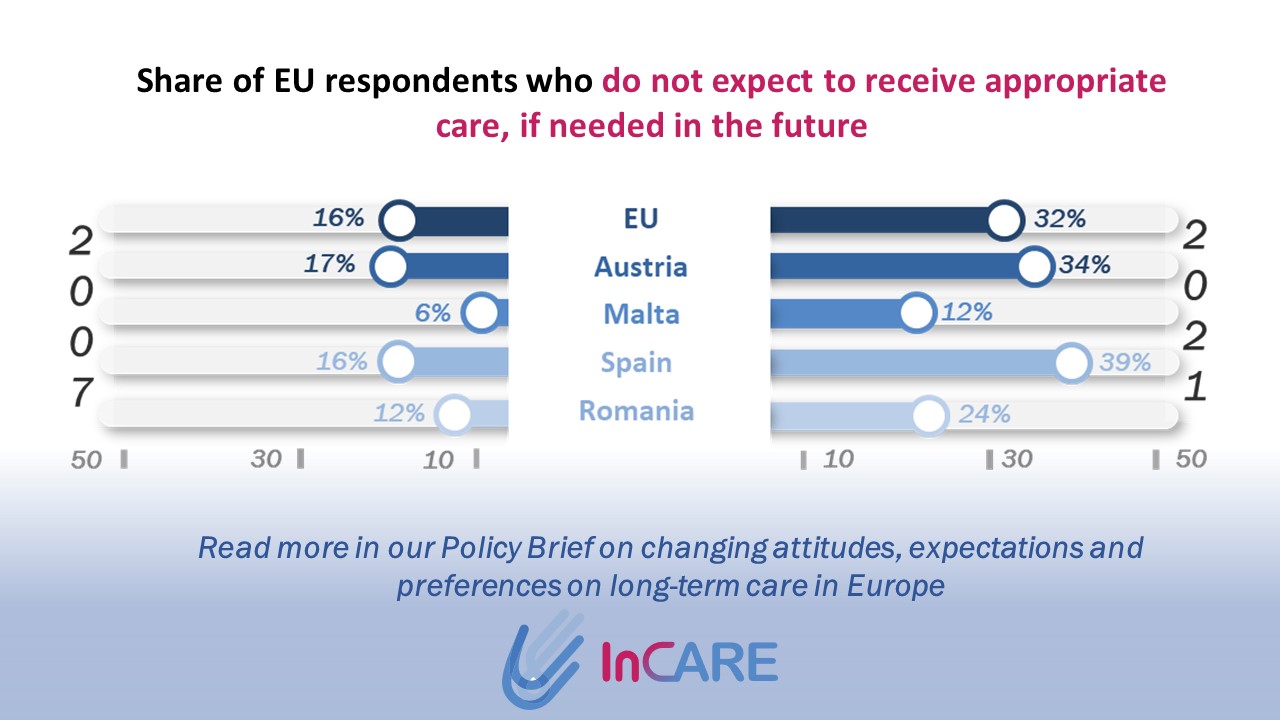
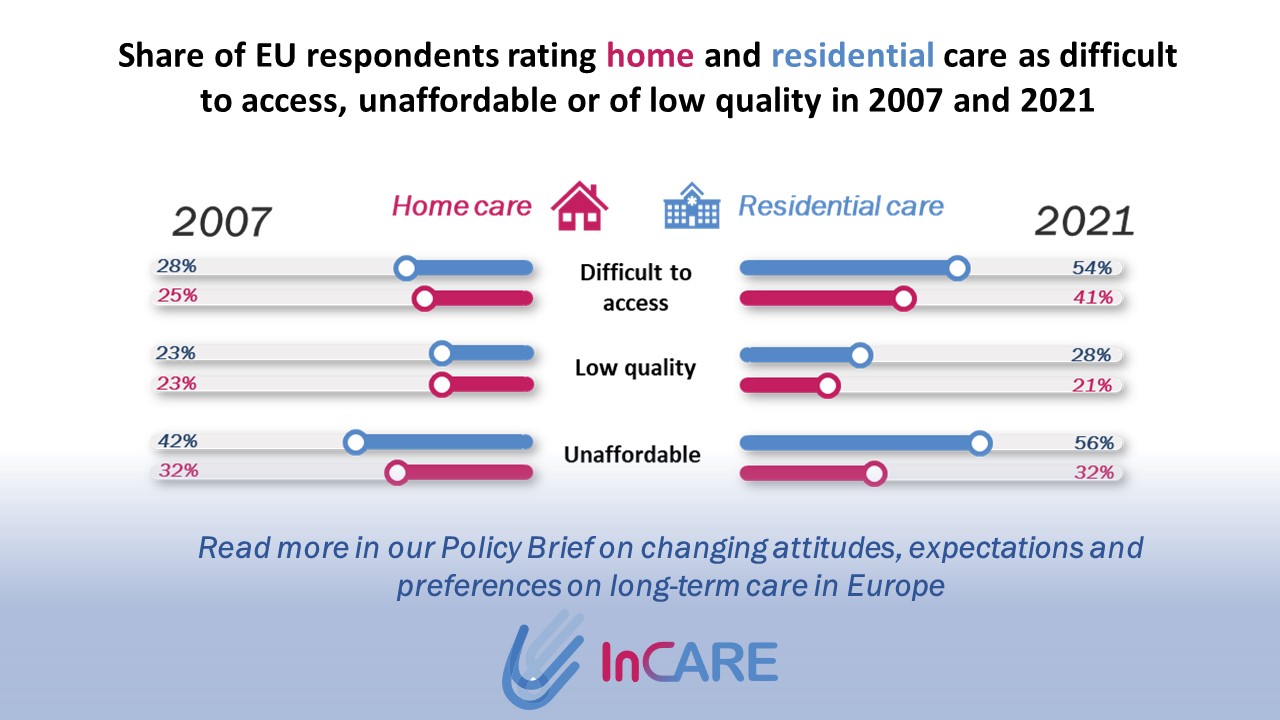
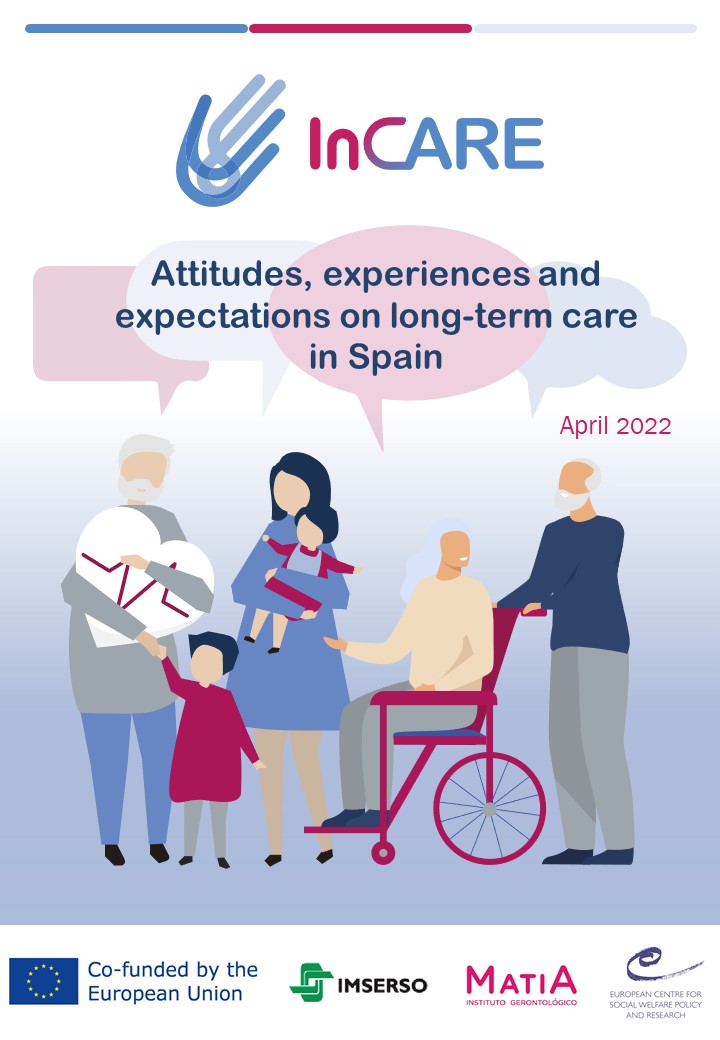
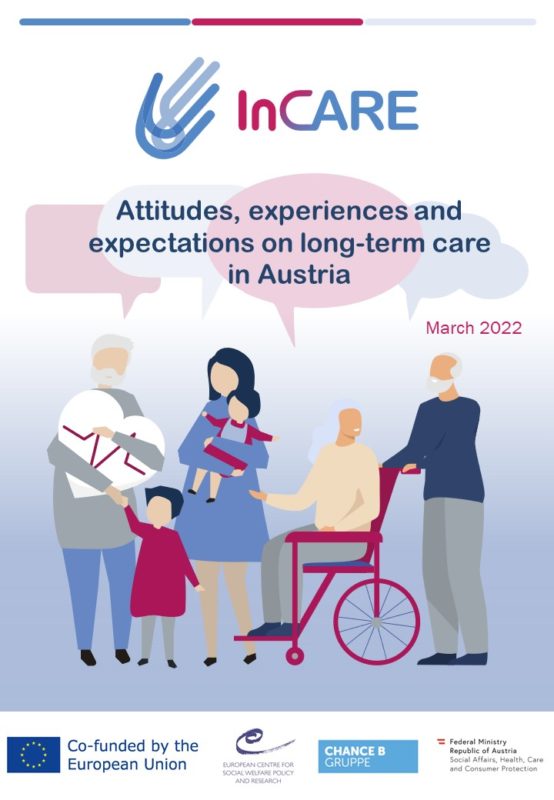
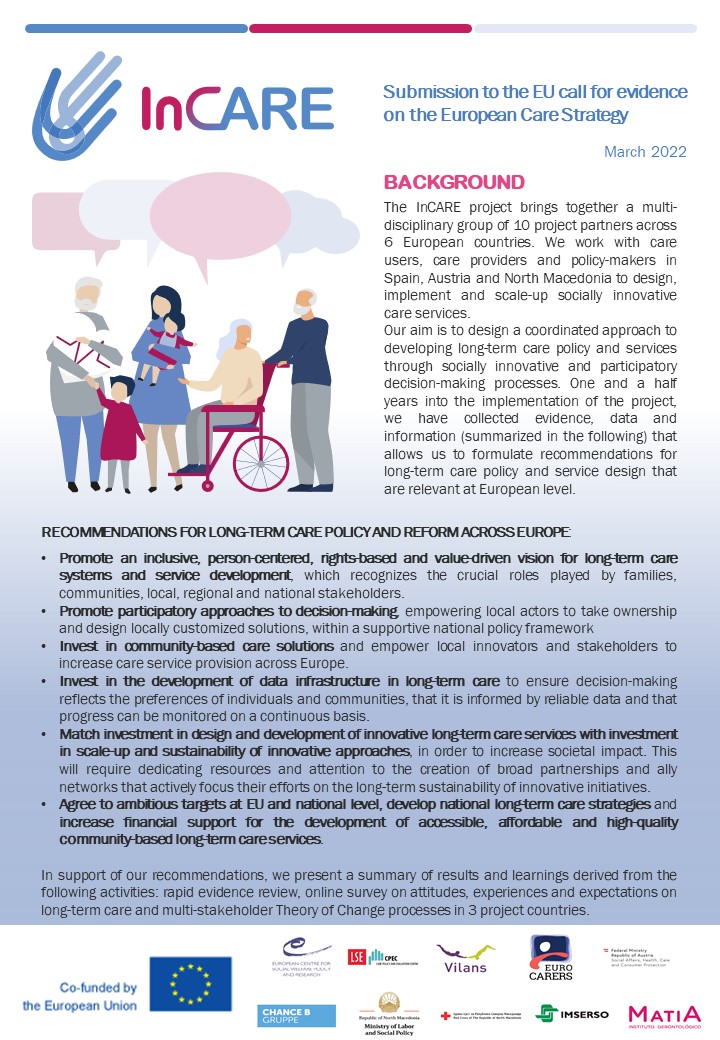









For the past ten years, I have been providing care to my mother with dementia and complex care needs whilst at the same time raising two children alone following the break-up of my marriage due to domestic abuse, and trying to combine this with work. I am exhausted and feel completely burnt out. Caring has negatively impacted on my work and career and affected my family life. My mother has recently moved to a small scale nursing home where she is so happy and so well looked after. There is huge pressure on families to continue to look after people with highly complex care needs and I question that. There are too few small scale nursing homes in Ireland.
My mother could afford to pay for care but we couldn’t get consistent reliable care due to the pandemic. We chose a residence but even they are limited to what they can provide and in Canada if a higher level of care is required then the person needs to go to LTC which wasn’t available at the time and she ended up staying in hospital until she passed. The government offers home supports with a cookie cutter approach; not tailored to what would make staying in her home possible. PSWs [personal support workers] to help shower and dress but no service to wash dishes. She could shower, [but] she needed help with dinner and dishes or laundry. The maximum hours [funded by the] Government is 4 hours/week not enough to sustainably stay home.
The government should invest in training social workers, so that quality of care is as high as possible, and at the same time the social status of social workers, professional carers and nursing staff is raised, they are better paid, and young persons would like to choose such careers.











